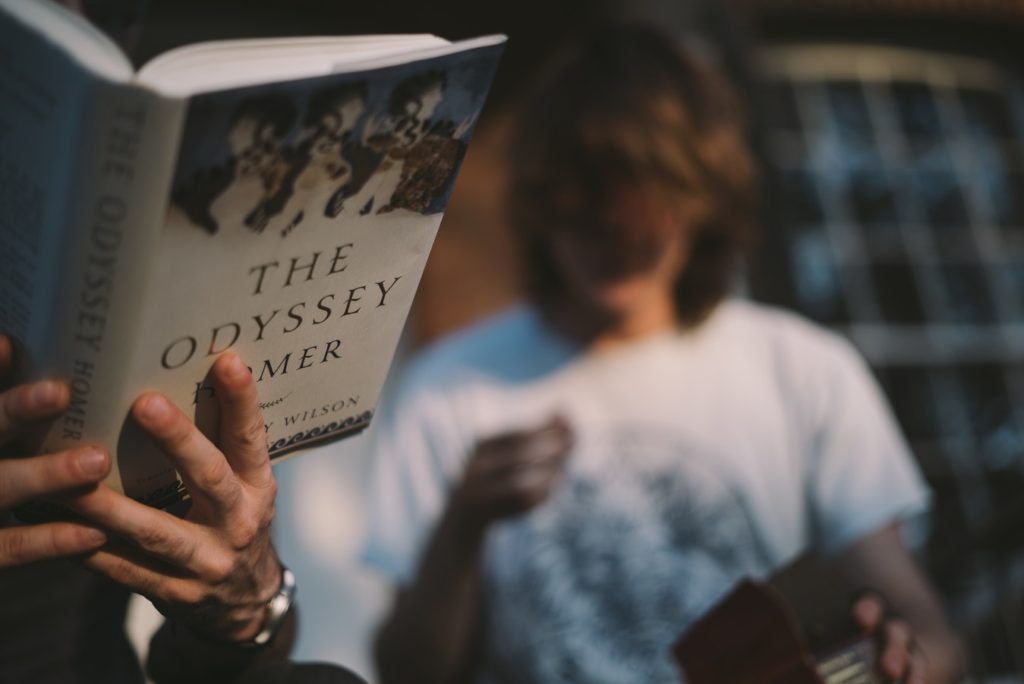
Photo by Tbel Abuseridze on Unsplash
I was defeated by Ulysses.
Well, that’s not so bad, so was the entire city of Troy, 200 suitors, and the Cyclops Polyphemos.
I mean the book. The one by James Joyce. I quit half-way. I’m supposed to be smart. I teach literature. I did War and Peace, Moby Dick, and Don Quixote in the same year. I read Infinite Jest in three months, for crying out loud! (Read this; it is really funny.)
There was that time when I threw Wuthering Heights across the room. But that was when I was young, and I later read that one no problem. Not so with Ulysses. I know when I have been beaten.
Maybe this is just round one. I can go back to it later, to keep up my record.
I don’t want to. Not even a little bit.
A Portrait of the Artist as a Young Man
I took a British Literature class. We read Joyce’s A Portrait of the Artist as a Young Man. I enjoyed parts of this book, particularly the description of hell in Father Arnall’s sermon. But there was something inside me that said this book was too much of something.
Here is an actual dialogue I had with a fellow student in this class after reading this book:
Professor: Is A Portrait a novel?
Me: No, a masterpiece but not a novel.
Brown-noser: Of course it’s a novel.
Me: No, it’s just Joyce showing all the neato things you can do to a novel. Novels are meant to be read, this book is not. It’s meant to be studied.
Brown-noser: Just because it’s not like a typical novel . . . if a painter uses a lot of new techniques we still call it a painting.
Me: If a painter brushes his initials onto a rock with water-soluble paint and then throws it off a cliff into the ocean before anyone sees it, do we still call it a painting?
The “too much of something’ in A Portrait of the Artist as a Young Man was many times too much in Ulysses.
Ulysses: Life is too Short
I agree with Ron Rosenbaum in “Is Ulysses Overrated?”
Actually, Rosenbaum doesn’t even agree with Rosenbaum, as much as I do.
I was fascinated by the fact that the plot of this book covers just a single day. It’s witty. Each chapter is written in a different style. For some people, all the allusions get in the way, but I thought they added to the meager appeal of the book.
I think that my main problem is that the book overturns almost every traditional way of telling a story. Is this book, change for the sake of change? One might argue that this is no worse a sin than writing in traditional modes for the sake of writing in traditional modes. And one would be right. Except one wouldn’t be holding Ulysses as one said it.
Traditional modes or writing need to be rejuvenated with new approaches, absolutely. But in Ulysses, Joyce has evolved the novel brilliantly, but this has not ended up with a book I want to read.
It’s a masterpiece. By all means, study it, but don’t bother reading it, for there is no joy there.
Or perhaps all this is simply justification and defensiveness arising from my humiliation–perhaps. If it ends up to be this, I will be posting a refutation and celebration of having finished Ulysses and proclaiming it’s brilliance.
[click_to_tweet tweet=”Ulysses is a masterpiece. By all means, study it, but don’t bother reading it, for there is no joy there. #Ulysses #JamesJoyce” quote=”Ulysses is a masterpiece. By all means, study it, but don’t bother reading it, for there is no joy there. “]
